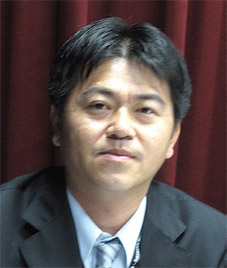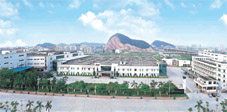SHINI Plastics Technologies Inc. is a world-class manufacturer and solutions provider in the plastics auxiliary equipment industry. The company was established in Taiwan in 1969 and celebrated its 40th anniversary last year. Its output reaches over 70,000 units annually and these are exported to 50 countries. The global financial crisis led customers to be conscious with their budget but for SHINI, growth has been attainable even in recession. Mr Aki Wu, General Manager of SHINI sees the crisis as an opportunity for re-structuring and seeking new markets.

IRNE: What has been SHINI's investment during the global financial crisis? Wu: The crisis began in the United States in 2007 and by late 2008, it had spread to many countries, with companies responding through massive emergency measures. In contrast, we set up a new department - the Automation Business Department -to design and manufacture for plastics machinery starting 2009. We have already received orders from domestic and overseas buyers and are ready to put them into mass production. We believe that the automation business department will become a major driving force for our growth next year. Additionally, we invested NT$ 600 million (or about $19 million) in a series of factory expansion. The factory in Dongguan, China was extended to 20,000 square metres in 2009; the extension of Taipei factory was completed by end-2009; a new factory spanning 36,000 square metres and total factory area of 10 acres in Pinghu near Shanghai, China was set up; while the factory in India began operation in July 2009. All these expansion works were completed by end-2009 and these could double our production capacity. IRNE: Please tell us more about your automation products. Wu: The robots are specially used for the removal of sprue and finished products after injection moulding. There are nine product series, including swing-arm robots, single-axis single stage servo driven robots, single-axis double stages servo driven robots, 3-axis single stage servo driven robots, 3-axis double stages servo driven robots, 5-axis single stage servo driven robots, 5-axis double stages servo driven robots, vertical transporter and belt conveyors.

IRNE: What steps have SHINI taken towards improving your overall operations? Wu: The issue of corporate management has been constantly reviewed during years of our vigorous growth. The economic slowdown in 2009 gave us the chance to focus on enhancing our corporate structure. We realigned with ISO-9001 standard and introduced internal audit, ERP (SAP), e-business, online learning system and knowledge management. We also adopted bar code systems to improve our resource management, and we introduced other measures to manage our costs. We advocated inter-departmental cooperation of the Production Department and the Metal Sheet Department to work together for greater efficiency. Such move is aimed at improving craftsmanship and product quality and raise self-making components for better spare parts quality, shorten delivery time and save cost. We made the best use of the time during the global financial crisis to push the company into better shape. The R&D department has already adopted relevant process. With the help of a Japanese technical consultant, SHINI has been releasing a variety of design standards and strengthening the cooperation of the R&D and production departments. Strict sample machine testing and certification process have also improved product quality. IRNE: What does the future hold for SHINI? Wu: Our efforts have brought fundamental changes that SHINI has progressed from a production-oriented local company to technical oriented, service and innovation focused international enterprise. Since we export 50% of our products and 30% of which are going to developed countries like Europe and Japan, we must striv
Brands IRNE: What has been SHINI's investment during the global financial crisis? Wu: The crisis began in the United States in 2007 and by late 2008, it had spread to many countries, with companies responding through massive emergency measures. In contrast, we set up a new department - the Automation Business Department -to design and manufacture for plastics machinery starting 2009. We have already received orders from domestic and overseas buyers and are ready to put them into mass production. We believe that the automation business department will become a major driving force for our growth next year. Additionally, we invested NT$ 600 million (or about $19 million) in a series of factory expansion. The factory in Dongguan, China was extended to 20,000 square metres in 2009; the extension of Taipei factory was completed by end-2009; a new factory spanning 36,000 square metres and total factory area of 10 acres in Pinghu near Shanghai, China was set up; while the factory in India began operation in July 2009. All these expansion works were completed by end-2009 and these could double our production capacity. IRNE: Please tell us more about your automation products. Wu: The robots are specially used for the removal of sprue and finished products after injection moulding. There are nine product series, including swing-arm robots, single-axis single stage servo driven robots, single-axis double stages servo driven robots, 3-axis single stage servo driven robots, 3-axis double stages servo driven robots, 5-axis single stage servo driven robots, 5-axis double stages servo driven robots, vertical transporter and belt conveyors.
IRNE: What has been SHINI's investment during the global financial crisis? Wu: The crisis began in the United States in 2007 and by late 2008, it had spread to many countries, with companies responding through massive emergency measures. In contrast, we set up a new department - the Automation Business Department -to design and manufacture for plastics machinery starting 2009. We have already received orders from domestic and overseas buyers and are ready to put them into mass production. We believe that the automation business department will become a major driving force for our growth next year. Additionally, we invested NT$ 600 million (or about $19 million) in a series of factory expansion. The factory in Dongguan, China was extended to 20,000 square metres in 2009; the extension of Taipei factory was completed by end-2009; a new factory spanning 36,000 square metres and total factory area of 10 acres in Pinghu near Shanghai, China was set up; while the factory in India began operation in July 2009. All these expansion works were completed by end-2009 and these could double our production capacity. IRNE: Please tell us more about your automation products. Wu: The robots are specially used for the removal of sprue and finished products after injection moulding. There are nine product series, including swing-arm robots, single-axis single stage servo driven robots, single-axis double stages servo driven robots, 3-axis single stage servo driven robots, 3-axis double stages servo driven robots, 5-axis single stage servo driven robots, 5-axis double stages servo driven robots, vertical transporter and belt conveyors.  IRNE: What steps have SHINI taken towards improving your overall operations? Wu: The issue of corporate management has been constantly reviewed during years of our vigorous growth. The economic slowdown in 2009 gave us the chance to focus on enhancing our corporate structure. We realigned with ISO-9001 standard and introduced internal audit, ERP (SAP), e-business, online learning system and knowledge management. We also adopted bar code systems to improve our resource management, and we introduced other measures to manage our costs. We advocated inter-departmental cooperation of the Production Department and the Metal Sheet Department to work together for greater efficiency. Such move is aimed at improving craftsmanship and product quality and raise self-making components for better spare parts quality, shorten delivery time and save cost. We made the best use of the time during the global financial crisis to push the company into better shape. The R&D department has already adopted relevant process. With the help of a Japanese technical consultant, SHINI has been releasing a variety of design standards and strengthening the cooperation of the R&D and production departments. Strict sample machine testing and certification process have also improved product quality. IRNE: What does the future hold for SHINI? Wu: Our efforts have brought fundamental changes that SHINI has progressed from a production-oriented local company to technical oriented, service and innovation focused international enterprise. Since we export 50% of our products and 30% of which are going to developed countries like Europe and Japan, we must strivBrands
IRNE: What steps have SHINI taken towards improving your overall operations? Wu: The issue of corporate management has been constantly reviewed during years of our vigorous growth. The economic slowdown in 2009 gave us the chance to focus on enhancing our corporate structure. We realigned with ISO-9001 standard and introduced internal audit, ERP (SAP), e-business, online learning system and knowledge management. We also adopted bar code systems to improve our resource management, and we introduced other measures to manage our costs. We advocated inter-departmental cooperation of the Production Department and the Metal Sheet Department to work together for greater efficiency. Such move is aimed at improving craftsmanship and product quality and raise self-making components for better spare parts quality, shorten delivery time and save cost. We made the best use of the time during the global financial crisis to push the company into better shape. The R&D department has already adopted relevant process. With the help of a Japanese technical consultant, SHINI has been releasing a variety of design standards and strengthening the cooperation of the R&D and production departments. Strict sample machine testing and certification process have also improved product quality. IRNE: What does the future hold for SHINI? Wu: Our efforts have brought fundamental changes that SHINI has progressed from a production-oriented local company to technical oriented, service and innovation focused international enterprise. Since we export 50% of our products and 30% of which are going to developed countries like Europe and Japan, we must strivBrands
 iConnectHub
iConnectHub
 Login/Register
Login/Register Supplier Login
Supplier Login



























